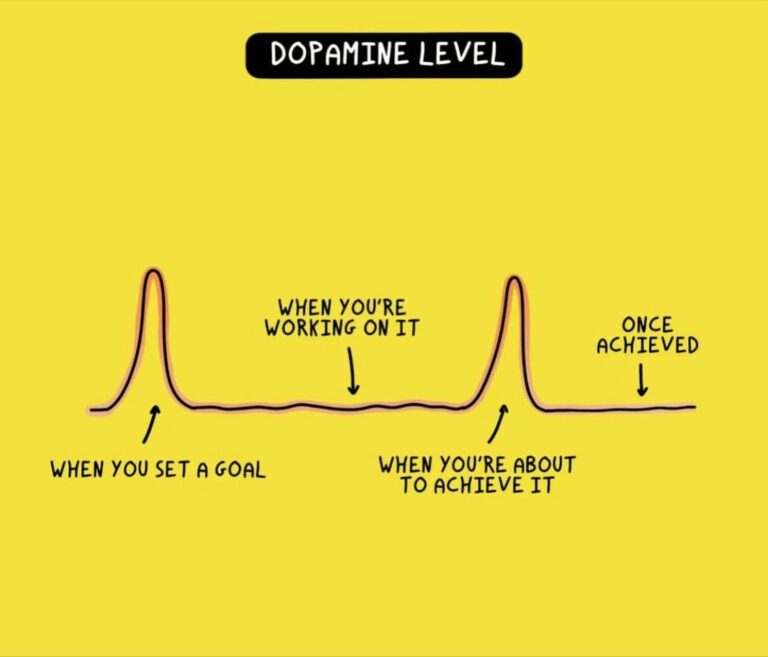
The act of setting a goal releases the neurotransmitter dopamine and motivates you to take productive action. A popular study published in Nature noted that dopamine not only spikes when we set a goal for ourselves but also when we’re close to achieving that goal. The bigger the reward, the more powerful the spike.
However, in the middle phase, dopamine is absent, explaining why you feel less motivated.
Some takeways:
☀️Steady, slow progress. Speedy progress is difficult to keep on fueling. Instead, regularly add tasks into your calendar and keep up with it.
☀️Focus on behaviours first, then goals. Steady behaviours will outperform the shiniest bite-sized goals.
☀️Even if you might be able to do great things by yourself, don’t. Try to find people that can keep you accountable and inspired.
Source:Front. Psychol., 15 October 2020
Sec. Personality and Social Psychology

Related Posts
Thinking in an Uncertain World: Toward a Human Leadership
Crisis is not a dead end but a space to inhabit. Rather than fleeing uncertainty, we must engage with it, seeing it as a source of renewal rather than paralysis. Thought must embrace the fluidity of...
Redefining Desire: Embracing Fulfillment Through Acceptance and Purpose
Desire isn’t the enemy, but neither is it something to chase endlessly. Faut pas chercher invites us to stop seeking fulfillment through constant acquisition and instead accept desire without obsession. By...
Cultivating Surrender and a “not seeking approach”
Wisdom is not always found in control or understanding but in surrender—trusting life’s natural flow. Overanalyzing can exhaust us, while embracing uncertainty brings peace. Letting go means releasing the...

